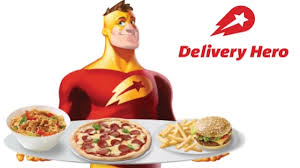Ironically, a big reason for investors’ enthusiasm is Delivery Hero’s non-German focus. A few years ago it offloaded its German businesses, Foodora, Lieferheld and Pizza.de, to Takeaway, a Dutch competitor. Since then it has eyed expansion in the Middle East and Asia. At the end of last year 50% of the company’s revenue came from the Middle East and north Africa, 30% from Asia and 12% from Europe. “It is today essentially an emerging-markets business,” says Monique Pollard of Citigroup.
讽刺的是,投资者热情高涨的一个重要原因就是外卖超人的业务重心不在德国。几年前,外卖超人将旗下的Foodora,Lieferheld和Pizza.de等的德国业务剥离给荷兰竞争对手Takeaway。从那时起,外卖超人就开始着眼于在中东和亚洲扩展业务。去年年底,公司50%的收益来自于中东和北非,30%来自亚洲,12%来自欧洲。花旗集团的莫尼克·波拉德表示:“本质上来说,如今的外卖超人是一家专注于新兴市场的企业”。

Many food-delivery firms do not operate their own fleets of vehicles but instead match consumers with restaurants and riders. That means they must share their cut with both restaurants and riders. “It is very hard to make a profit with the three-way-split model in Europe,” explains Andrew Gwynn of Exane BNP Paribas. But the model works in emerging markets where order sizes are large and delivery workers’ wages low.
许多送餐公司并不经营自己的车队,而是为消费者匹配餐厅和骑手。这意味着这些公司必须将自己的利润分给餐厅和骑手。法国巴黎银行的安德鲁·格温作出解释,“在欧洲,这样的三方分割模式很难盈利。”但这种模式适用于订单量大、骑手工资低的新兴市场。
Delivery Hero could become a viable business, if it manages to keep its focus on the developing world and stay on top of the next wave of consolidation, which began with the combination of Just Eat and Takeaway, two European firms, earlier this year, and their proposed takeover of America’s Grubhub in June. At the very least it has a decent shot at staying in the DAX longer that firm it replaced. Wirecard, a payments-processor bankrupted earlier this year by a huge accounting fraud, was booted out of the index barely two years after its own ascension.
如果外卖超人能将重心放在发展中国家,并在下一波并购浪潮中处于主导地位,其业务将得以发展。今年早些时候,两家欧洲公司JustEat和Takeaway合并,并于6月收购了美国的Grubhub,这一系列行径揭开了并购浪潮的序幕。至少,外卖超人在DAX指数的停留时间会超过它取代的公司,还算体面。Wirecard是一家提供支付服务的企业,这家公司在今年早些时候因巨额财务造假而破产,仅上榜DAX指数指数两年就被逐出了榜单。













